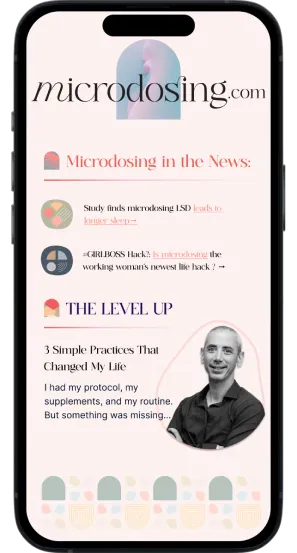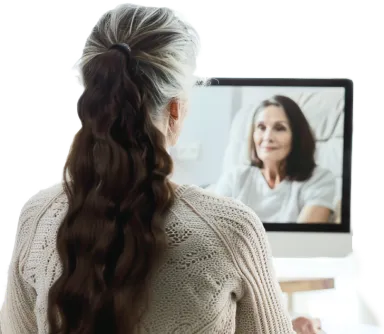1930s-1950s: The Early Days
- 1938: Albert Hofmann first synthesizes LSD-25 at Sandoz Laboratories, though its psychoactive properties are not yet known.
- 1943: Albert Hofmann accidentally discovers the psychedelic properties of LSD.
- 1950s: Psychedelics are widely studied for their potential therapeutic benefits in psychiatry.
- 1957: R. Gordon Wasson publishes “Seeking the Magic Mushroom” in Life magazine, introducing psilocybin mushrooms to a wider American audience.
1960s-1970s: The Psychedelic Movement
- 1960s: The counterculture movement embraces psychedelics for their mind-expanding properties.
- 1966: LSD is made illegal in California, followed by other states.
- 1970: The Controlled Substances Act in the United States classifies LSD and psilocybin as Schedule I drugs.
- 1979: Thomas B. Roberts coins the term “mini-dose” in his book “Psychedelics and Spirituality,” which can be seen as a precursor to the concept of microdosing.
1980s-1990s: Underground Experimentation
- 1980s: Underground communities and some scientists continue to experiment with psychedelics, including early forms of microdosing.
- 1986: The Multidisciplinary Association for Psychedelic Studies (MAPS) is founded by Rick Doblin.
- 1990s: Renewed interest in the therapeutic potential of psychedelics sparks a resurgence in research.
2000s: Modern Resurgence
- 2010: Dr. James Fadiman begins collecting anecdotal reports on microdosing.
- 2011: Fadiman publishes “The Psychedelic Explorer’s Guide,” which includes information on microdosing, helping to introduce the concept to a wider audience.
- 2015: Microdosing gains mainstream attention, particularly its purported use in Silicon Valley, through articles in major publications:
- November 20, 2015: Rolling Stone publishes “How LSD Microdosing Became the Hot New Business Trip” by Alex Williams.
- November 27, 2015 : Forbes publishes “LSD Microdosing: The New Job Enhancer In Silicon Valley And Beyond?” by Robert Glatter, MD.
- 2017: Ayelet Waldman publishes “A Really Good Day,” documenting her personal microdosing experience, further popularizing the practice.
- 2018: Yanakieva et al. publish the most scientifically rigorous double blind placebo controlled microdosing study to date, focusing on time perception.
- 2019: Johns Hopkins University establishes the Center for Psychedelic and Consciousness Research, marking a significant step in legitimizing psychedelic research.
2020s: Mainstream Acceptance and Continued Research
- 2020: Oregon becomes the first US state to legalize psilocybin for therapeutic use and decriminalize possession of small amounts of drugs, allowing for legal microdosing in supervised settings.
- 2021: A study at Maastricht University exploring the effects of microdosing LSD on cognitive flexibility, mental well-being, and neuroplasticity, aiming to provide evidence for its therapeutic potential in mental health treatment.
- 2022: A study published in “Nature” assessed the cognitive and psychological effects of microdosing psychedelics. Researchers found that microdosing improved mental health metrics such as stress, anxiety, and depression while enhancing cognitive functions like attention and creativity. However, the study highlighted the need for more controlled clinical trials to confirm these findings and understand the long-term impacts and safety of microdosing.
- 2022: Pamela Kryskow and Paul Stamets publish a study on microdosing in Nature Scientific Reports, highlighting the benefits of the “Stamets Stack” which includes psilocybin, Lion’s Mane, and niacin, showing improvements in mood and mental health over a month compared to non-microdosing controls.
- 2022: Colorado legalizes psilocybin mushrooms and other natural psychedelic substances with the passage of Proposition 122. This measure allows adults 21 and older to use, possess, and grow these substances, and establishes a framework for regulated “healing centers” where supervised psychedelic sessions can occur.
- 2024: A JAMA article titled “State Cannabis and Psychedelic Legislation and Microdosing Interest in the US” explores the relationship between state-level legislative changes regarding cannabis and psychedelics and the rising interest in microdosing.
Disclaimer: This timeline includes some important dates in the history of microdosing, but it is not comprehensive of all significant events.
This infographic is the property of Microdosing.com and is used here under a fair use policy. We encourage the free use of this infographic for educational purposes, provided that proper credit is given to Microdosing.com. Please include the following attribution when using the infographic: “Infographic courtesy of Microdosing.com” with a link to Microdosing.com



